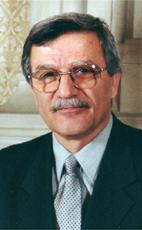Mr. Speaker, family reunification has long been a key objective of the Government of Canada's policy and legislation. It helps ensure the well-being of each newcomer we bring to Canada and it substantially contributes to community growth and prosperity. Debates on how to strengthen this important cornerstone of Canadian policy to allow more family members to sponsor their loved ones from abroad therefore have a long and rich tradition.
In June 2002 Canada opened a new chapter in this regard with the passage of regulations to significantly enhance the family reunification program, which more closely reflect today's social and cultural realities. These changes reflect extensive public consultation as well as the government's commitment to expand the family class and balance the number of family members we bring to Canada each year with a sustainable plan.
The new regulations allow individuals in a common law or conjugal relationship with a Canadian to be sponsored. They broaden the definition of dependent child by including children under 22 years old, up from under age 19 in the previous regulations. The regulations also reduce the age at which Canadian citizens or permanent residents are eligible to become sponsors from 19 to 18 years old, and they decrease the period of sponsorship undertakings from ten years to three years in most cases.
These changes are based on careful deliberations and reflect the recommendations of individual experts in the field as well as stakeholder organizations in every region of the country. They support our commitment to the family. They also help ensure that Canada maintains the appropriate balance of economic and family class immigration.
As part of the public consultations concerning the new regulations, the government gave careful consideration to a number of options to further expand the family class, including a suggestion that each Canadian or permanent resident should receive a one-time opportunity to sponsor a non-family class relative. The once in a lifetime sponsorship option was found unworkable for a number of reasons, all of which apply to the private member's bill before the House today.
Bill C-436 would amend the Immigration and Refugee Protection Act to grant Canadian citizens and permanent residents the right to sponsor, once in a sponsor's lifetime, one foreign national who is a relative but not a member of the family class. The bill contains no definition of relative nor any apparent restrictions or limitations on intake beyond its once in a lifetime provision. Such a wide open approach would significantly increase processing delays and the size of existing backlogs for every immigrant category. It would place an unsupportable burden on existing resources, and it would help to undermine the integrity of the entire immigration program by increasing the opportunities for fraud.
Canada's recent experience with the removal of limitations on sponsorships clearly demonstrates the flaws in the private member's bill under consideration. In 1988 the government of the time changed the sponsorship rules to include all unmarried sons and daughters in the family class. Total intake in this category nearly doubled over two years, going from 53,033 in 1987 to 104,199 in 1989. When the government cancelled the program in 1993, it was after an eight year processing backlog had been incurred at some Canadian missions, and some of the effects are still being felt today.
Think of it this way. The increase from 1987 to 1989 consisted almost entirely of never married children of any age. If the proposal under debate today were limited to never married children, family class intake would at least double in the next two years. However, if all distant relatives are included with their spouses and children, family class intake could increase even more. Since the newly landed relatives could themselves sponsor any relative as soon as they were qualified to do so, the family class could potentially overwhelm the immigration program. This is clearly not in the best interests of Canadians or the newcomers we bring to our shores.
We agree with the concept of expanding the family class and making it easier for families to reunite with their loves ones in Canada. We agree with the idea of strengthening families in general. Our recent actions clearly support and reinforce this commitment, but the government has also a duty to properly manage the immigration program and ensure that the principles of fairness, integrity and balance are upheld. We therefore cannot support Bill C-436 or any other special provision that fails to take into consideration all that I have mentioned earlier.

